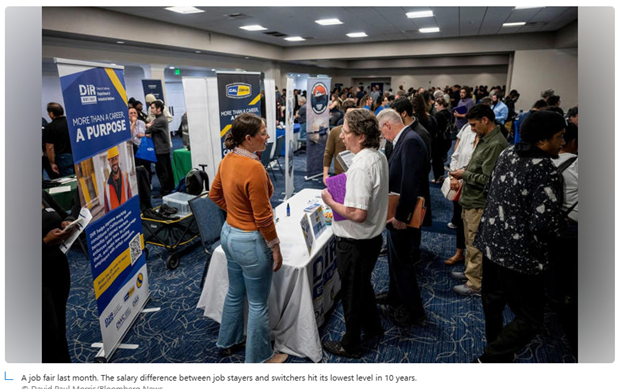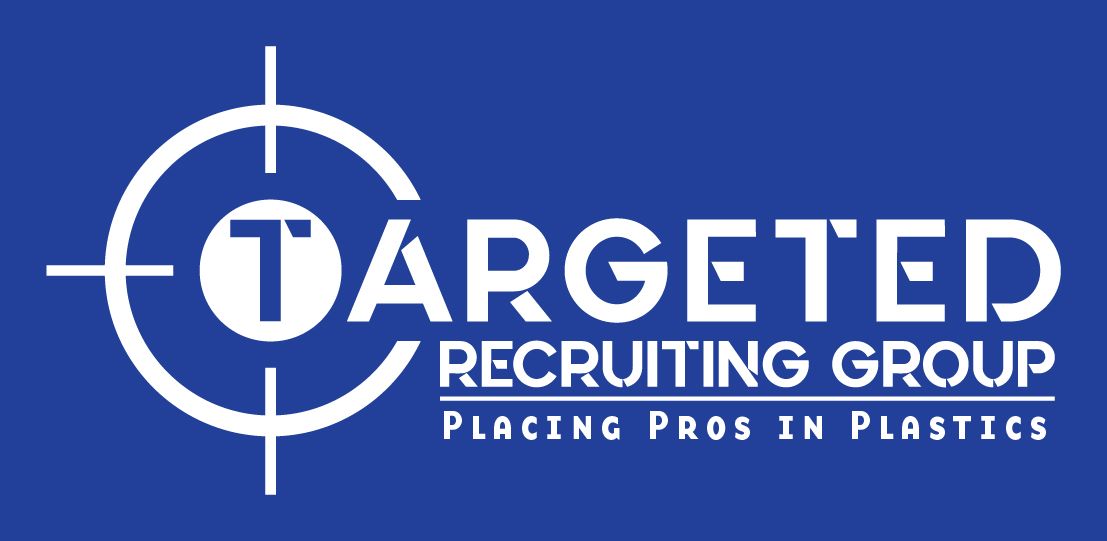July 11, 2025
A New Kind of Job Search Struggle After months of job applications and interviews, Alanna was left feeling defeated. In one viral essay, she confessed that “job hunting is appalling for our mental health.” She’s far from alone. Many job seekers today describe being burned out, ashamed, or simply exhausted by the process — applying endlessly, getting ghosted by employers, or facing rejection without feedback. In fact, about 72% of job seekers say the search has negatively affected their mental health , and nearly half cite being ghosted by employers as one of their biggest frustrations. If you’ve felt the sting of sending resumes into the void or the shame of yet another rejection, this article is here to say: you’re not alone, and it’s not your fault. The modern job market is tougher than ever, but understanding why can help you cope. Below, I will explore the emotional toll of the 2025 job hunt, the new realities of hiring (from AI filters to scams), and — most importantly — practical steps to empower yourself during the search. It’s a challenging road, but with the right mindset and support, you can and will get through it. The Emotional Toll of Modern Job Hunting Feeling discouraged or “not good enough” is a common experience during a long job search. For many, the job hunt feels like an emotional rollercoaster. You might start hopeful, but after dozens of applications and little response, that hope can turn into anxiety and self-doubt. Rejection (or worse, silence) can chip away at your confidence. “Ghosting during the job search… being on the receiving end HURTS,” career coach Rebecca Fraser-Thill notes . It’s deeply human to wonder, “Is it me? What am I doing wrong?” The truth is that rejection in today’s market is often not personal. Over half of U.S. job seekers were ghosted in the past year at some stage of the process, so if it’s happened to you, you’re in the majority, not the minority. Employers might not reply for reasons that have nothing to do with your worth — sometimes the role gets closed, or was even a “ghost job” (a posting for a position that isn’t actually being filled — about 20% of listings may be these ghost jobs . Yet knowing this doesn’t always ease the emotional impact in the moment. Importantly, it’s okay to feel what you feel . Job loss and extended unemployment can evoke grief-like emotions. As one mentor put it, it’s normal to feel “angry, sad, upset and scared” during a tough search. Give yourself permission to acknowledge those feelings rather than bottling them up. There is no shame in struggling or in taking time to regroup. In fact, talking about these challenges openly is a step toward breaking the stigma many job seekers carry. Remember: you are not defined by your job status. This period is a chapter, not your whole story. Why Job Searching in 2025 Feels So Difficult Several trends have converged to make the class of 2025’s job search uniquely challenging. Understanding these can validate your experience (it really is harder now) and help you strategise: Algorithmic Gatekeepers (AI Filtering): These days, your first “interviewer” is often a robot. Over half of companies use AI in hiring , from scanning resumes to even conducting video interviews. Applicant Tracking Systems automatically filter applications, sometimes before a human ever sees them. While AI can speed up hiring for employers, it can leave candidates feeling like their applications disappear into a black box. Tailoring your resume with the right keywords is crucial, but even perfectly qualified candidates can get overlooked by an algorithm. It’s frustrating and impersonal — one more reason the process can wear you down. Long, Unpredictable Processes: Hiring has become a marathon, not a sprint. On average it takes about 44 days (6+ weeks) to fill a role now, and that’s just from the employer side. For job seekers, the total search often stretches 5–6+ months. In fact, recent surveys show over half of job seekers have been searching for six months or more , and 34% for over a year. Multiple interview rounds, skill tests, panel presentations — today’s candidates jump through more hoops, over a longer time. This drawn-out uncertainty can drain anyone’s energy. Ironically, employers know that top candidates get snatched up quickly (often within 10 days) , yet many companies still move slowly. The result? Prolonged stress on job seekers who feel stuck in limbo, often juggling financial pressure and hope deferred. , Higher Competition & Skill Gaps: The good news: unemployment remains relatively low, and there are job openings out there. The bad news: competition is fierce for many roles, and skills requirements have soared. With rapid changes in technology, companies seek specific skill sets that many candidates are still developing. 76% of employers report difficulty finding skilled candidates for their openings. That means job seekers often face a mismatch — you might have years of experience, but not in the exact new tool or niche the employer wants. It can feel like you’re always “not quite what we need.” This skills gap puts pressure on candidates to constantly upskill or risk being overlooked. New grads and career changers especially might feel they’re hitting a wall of “experience required” catch-22s. Scams and Misinformation: To make matters worse, job scams have skyrocketed . Fake job postings, phishing texts from “recruiters,” and too-good-to-be-true offers abound. The U.S. FTC reported that losses from job scams tripled from 2020 to 2023, exceeding $220 million in just the first half of 2024. Scammers prey on desperate job seekers, which means on top of genuine applications, you have to stay vigilant about what’s real. This atmosphere of distrust and caution adds another layer of mental load to your search. Always double-check company emails and never pay for a “job opportunity” — but having to be on guard all the time is certainly draining. “Numbers Game” Fatigue : Finally, there’s the sheer volume of applications many feel they must send. With online job boards and easy “Quick Apply” buttons, it’s not uncommon for applicants to shoot out dozens or even hundreds of resumes. A recent analysis found job seekers applied to over 200 jobs on average before landing one offer. This high-volume approach can lead to application fatigue — the process becomes a mind-numbing grind of submitting forms and hoping for a reply. When effort isn’t met with results, motivation and morale suffer. It’s no wonder so many candidates report feeling like the job search is a full-time job (without the paycheck or the perks). Understanding these trends isn’t about making excuses — it’s about affirming that your struggle is real. The system is far from perfect. But until it improves, how can you as a job seeker protect your well-being and keep pushing forward? The next section offers some guidance to do just that. From Burnout to Breakthrough: Empowering Your Job Search The situation may look tough, but there are ways to regain a sense of control and optimism in your job hunt. Here are some strategies and mindset shifts to help you stay resilient and proactive: Build Your Support Network : Job searching can feel isolating, so don’t go it alone. Reach out to friends, family, mentors, or former colleagues — people who can provide encouragement, feedback, or even job leads. Career experts suggest surrounding yourself with a support system to confide in throughout your search. This could mean joining a job-seekers meetup or an online community (like LinkedIn groups) where people share tips and simply vent. Emotional support is not a luxury; it’s a necessity. When you voice your frustrations or fears, you often find others saying “I’ve been there too.” That sense of camaraderie can help lighten the mental load. Consider also finding a “job search buddy” — someone you check in with regularly to swap progress and keep each other accountable and motivated. Remember, asking for help is a sign of strength, not weakness. Prioritise Mental Well-Being : Maintaining your mental health in a strenuous job hunt is essential. Think of this search as a marathon, not a sprint — you need rest and pacing. Set boundaries on your search activities to avoid burnout. For example, rather than scouring job boards 12 hours a day, you might commit to applying during a focused 2–3 hour window when your energy is highest (and then give yourself permission to step away and recharge). Build breaks and self-care into your routine: exercise, take walks, get enough sleep, and engage in hobbies that make you happy. These aren’t distractions; they are fuel to keep you going. Practice a mindset shift: instead of dwelling on rejection, try to reframe setbacks as learning opportunities (e.g. if you didn’t ace an interview, ask what you can improve next time). And celebrate small wins — did you tweak your resume, reach out to a new contact, or finish a course? Those are victories on the path to your next job. Keeping a positive outlook doesn’t mean “always be happy” — it means nurturing hope and resilience even on hard days. Upskill and Showcase Your Value : One empowering thing you can do during a job lull is to invest in your skills. Identify the gaps or emerging skills in your industry and tackle one or two that genuinely interest you. This could be a formal certification (many platforms like Coursera or LinkedIn Learning offer affordable courses) or a self-driven project. For instance, if you’re in marketing, you might learn a new analytics tool; if you’re in finance, maybe a data visualisation skill. In 2025, having some AI fluency is smart in almost any field — even a basic understanding of AI tools or data can boost your marketability. But don’t just stop at learning; showcase it. Add the new skill to your resume and LinkedIn, write a post or blog about what you learned, or include a link to a small project. This is where no-code tools can be your best friend: you don’t need to be a programmer to create something impressive. With no-code platforms (for example, Webflow or Wix for websites, or Bubble for apps), you could build a personal portfolio site or a mock-up of a product idea without writing a single line of code. It’s a great way to demonstrate creativity and initiative. Even a simple website that shares your work or a dashboard you built with a no-code tool can set you apart from other candidates. Plus, learning these tools adds to your skill set! By continuously developing yourself, you not only improve your qualifications — you also regain a sense of purpose and progress that can counter the stagnation you might feel during a long search. · Be Strategic (Quality Over Quantity): When you’re feeling desperate, it’s tempting to blast out applications everywhere (“spray and pray”). But a targeted approach often yields better results and saves sanity. Take time to clarify what you’re really looking for — the roles, industries, and companies that align with your goals — and focus your efforts there. Customise your resume and cover letter for each application to highlight the exact skills and experiences that match the job description. Yes, it takes more time per application, but it can dramatically increase your response rate. Also, don’t rely only on job boards. Network your way in: reach out to contacts at companies, attend virtual industry events, or ask for informational interviews. Referrals can get you in front of real people faster than any online application. In 2025’s market, who you know (and who knows you) is as crucial as ever. Finally, make use of smart tools to streamline your search — for example, set up LinkedIn job alerts to hear about openings early, or use a spreadsheet or app to track your applications and follow-ups. If writing applications is taking too long, consider using AI tools (like ChatGPT) to help draft or improve your cover letters in your own voice — just use them ethically and always proofread for accuracy. Working smarter, not just harder, will help you conserve your energy and stay organised. Closing Thoughts: Resilience and Hope Ahead The job search landscape may have changed, but your ability to adapt and persevere is stronger than you think. Every application sent, every interview (even the ones that don’t pan out), and every new skill learned is building your resilience. It’s true, you can’t control how employers behave — some will still ghost or drag their feet — but you can control how you respond and grow in the process. Remember that this challenging journey is temporary. As hard as it is to believe during the darkest moments, you will find the right opportunity with time. And when you do, all these trials can serve to make that success even sweeter. In the meantime, be kind to yourself. You are more than your job search. The fact that you’ve made it this far, despite the setbacks, already speaks to your strength. Keep that supportive network close, keep learning and improving step by step, and keep the faith that better days are coming. The world of work is always evolving, and you are evolving with it. Stay resilient, stay hopeful, and know that each “no” brings you closer to the eventual “yes.” You’ve got this — and your next professional chapter is on the horizon. Credit: Gustav Ehlert , Marketing and Communications Intern at Reshaping Work and recent Global Business and Sustainability Masters Graduate from the Rotterdam School of Management










